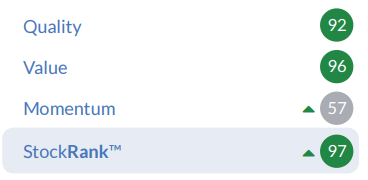The problems with portfolio reviews
In early January, many investors like to publish end-of-year reviews. However, a form of selection bias undoubtedly affects who chooses to report. Those who have done well are more likely to put the effort in to write up their investing year. Professional investors have to report their performance, and their partners expect detailed commentary, which can give a more balanced view. However, even amongst these investors, having a strong year can introduce an element of hubris. Merriam-Webster summarises hubris as:
In classical Greek tragedy, hubris was often a fatal shortcoming that brought about the fall of the tragic hero. Typically, overconfidence led the hero to attempt to overstep the boundaries of human limitations and assume a godlike status, and the gods inevitably humbled the offender with a sharp reminder of his or her mortality.
Anyone who has invested for any period of time will recognise the feeling of being humbled by the market gods!
A second bias affects those reading portfolio reviews. Investors view someone with a particularly strong yearly performance as someone to be emulated. This may be true over the very long term. However, the time period that investors evaluate performance is typically three to five years. In the same way that corporate performance tends to mean-revert over these timescales, so do many investment styles. For example, Quality Investors performed phenomenally well from 2015 to 2019, and this gave many fund managers in this space godlike status. Sadly, neither the performance of the funds nor the status of these managers survived different market conditions. Investors who read the glowing annual reviews and converted to investing in “quality compounders” and holding forever are still waiting for their time in the sun.
With selection bias, hubris, and switching strategies being major problems that can be caused by portfolio reviews, it is tempting to neither review one’s portfolio nor read others’ reviews. However, this may cause investors to miss out on significant learning opportunities. The best investors tend not to be those with the greatest knowledge but those who are most willing to keep adding to their understanding. My own solution is to review the mistakes I made over the past year, with, hopefully, a focus on avoiding these in the future.
What is a mistake?
It may be tempting to think that every losing investment was a mistake. However, I don’t think this is…









